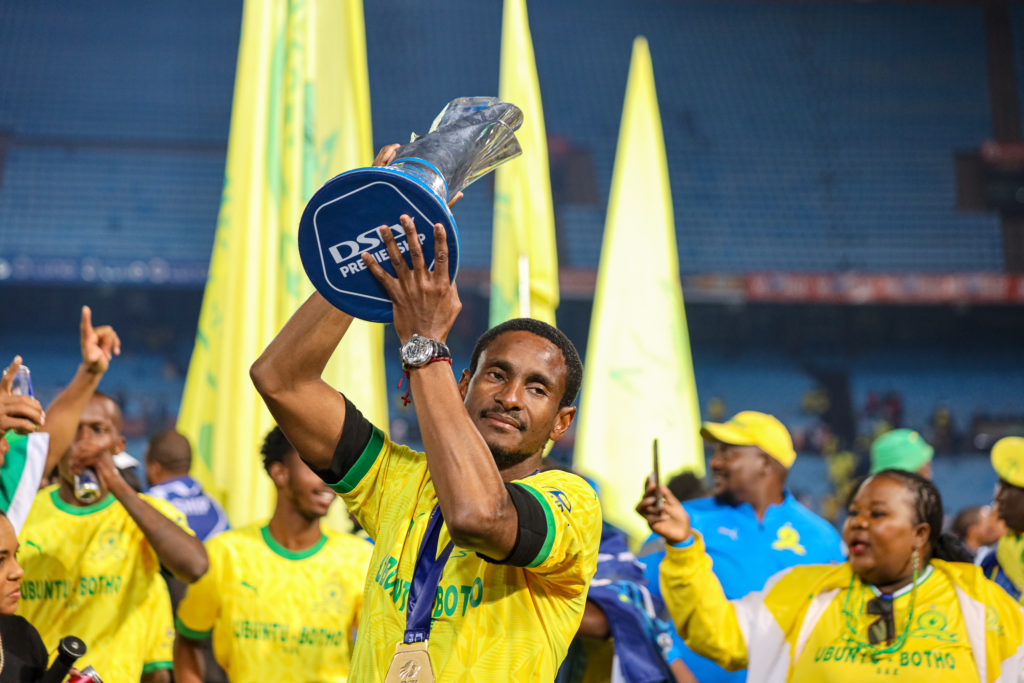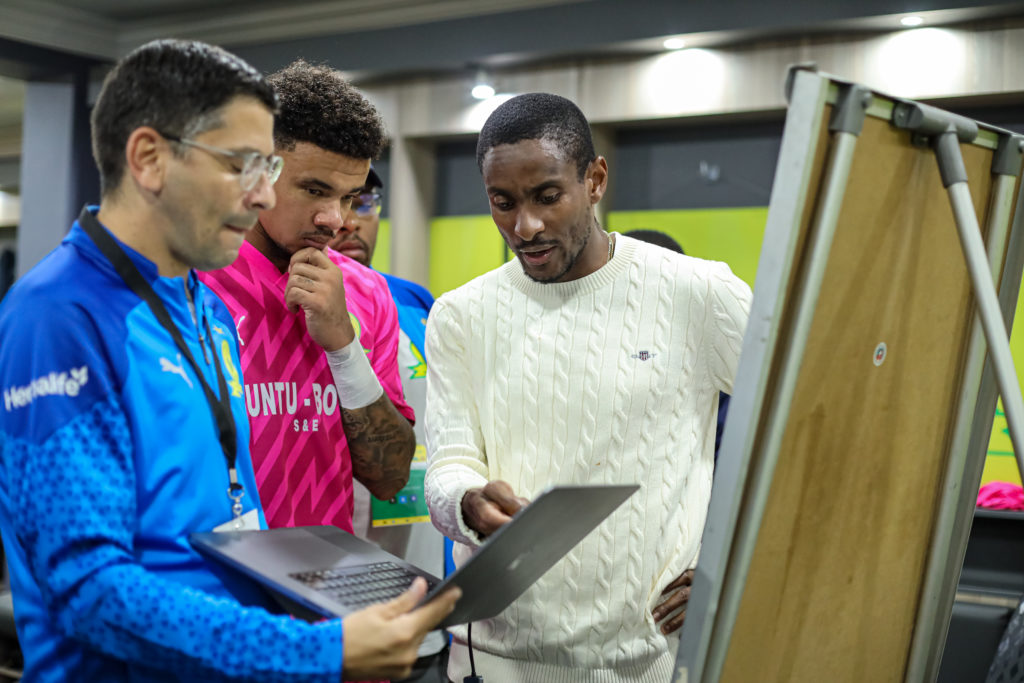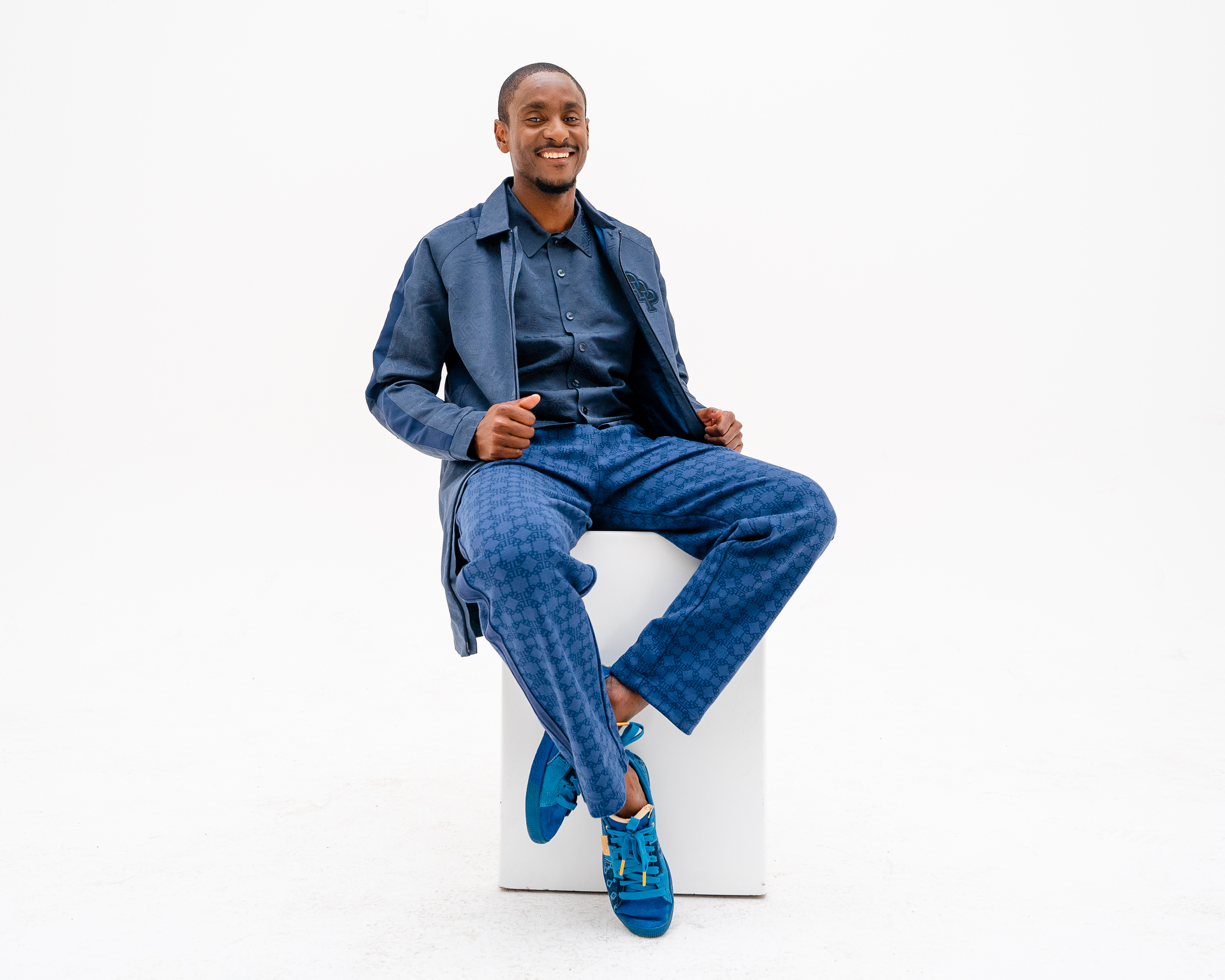In an exclusive interview, Rulani Mokwena, the brand-new 37-year-old coach of the Wydad Casablanca club in Morocco, opens up about his early days and the difficulties and tragedies that shaped him to become one of South Africa’s most elite football stars.
A chance occurrence at the age of 14 thrust Rulani Mokwena into coaching but in truth the new Wydad Casablanca tactician w s born into football and created arguably the greatest team in the history of the South African game at Mamelodi Sundowns.
Mokwena is just 37, considered young for a topflight coach, but has already achieved more than most of his peers and is only getting started in a career that appears to have no ceiling, having recently signed with Moroccan giants Wydad.
He comes from South African football royalty, his father Julius and grandfather Eric are considered Orlando Pirates legends, while his uncle Jomo played at New York Cosmos with Pele in the 1970s and is among the finest footballers the country has produced.
The game is in his blood and many happy years spent as a child watching his family play shaped him.
Loading...
“My first memory is when I was in the changeroom at Orlando Stadium, (his cousin) Bamuza Sono was there. He was playing with a soccer ball, but I was rewriting what the coach was saying on the blackboard in the room,” Mokwena tells FORBES AFRICA.
That moment proved prophetic, Bamuza would go on to become an accomplished player with Jomo Cosmos, and Mokwena among the country’s elite coaches. Their roles in life had already seemingly been assigned.
“I have no hobbies outside of the game, for me it is a calling. I have served the game and given my life to it. I sacrificed so much of my childhood because I started coaching at the age of 14. I never cheated the game to get to where I am.”
Much of coaching is about leadership and Mokwena admits he was “extremely inquisitive” as a child, and was one of the first Black prefects at Rand Park High School in Johannesburg. “As a kid I had a lot of discipline, I have always been reclusive and a deep thinker,” he says. “My mother would tell me, ‘there are things (in life) you must fear’, but I never had that mentality. “At my Matric farewell, I remember a teacher telling my mother, ‘your son has surpassed our expectations in terms of who he arrived (at the school) as and who he is leaving as’. “They told her she should push me to study to be a doctor or a lawyer because it would be a waste if I did anything other than that. But I had already set my mind on sport science and becoming a football coach.
“I was 18 when I left high school but had already been a coach for four years.”
How he fell into coaching is a story of chance, though in likelihood, with his personality and drive, he would have ended up in the dugout at some point anyway.

“I was the captain of the Under-17 team for a club called Fulham in Dube in Orlando West. I would walk from my house to the coach’s house to collect the balls and training equipment. That was my job as captain.
“On this occasion, when I got to training, I saw there was a group of players from the Under-12 squad that were just sitting on the sidelines waiting for the coach to arrive. Their coach also happened to be my coach too.
“I put on my boots and started taking the training session. I asked them to jog around and did some drills, and then I did the same for my team later on.
“Little did I know he (the coach) had got a new job and it was his first day. From then on, I became coach of the Under-12s. It was fate, but that is where the whole thing took off.”
Mokwena learned his trade in the junior set up at Platinum Stars, and later as an assistant coach at Sundowns and Pirates. He also managed to spend some time at English Premier League club Liverpool, observing their vaunted manager Jürgen Klopp. He picked up many small lessons on modern coaching and overseeing big squads of players who all expect to start every week.
“Klopp said to me, ‘know just enough as a head coach not to be bulls**ted, so that people don’t pull wool over your eyes’,” Mokwena says. “I try to invest my time in different areas.
“In training sessions, I have had the players wear GoPro cameras so that I can see what they see. I put certain demands on them, and I see whether they think about the rules and the action they have to take.
“You get to see how many scans (of the pitch) certain players do in a period of time. A player like (Mamelodi Sundowns midfielder) Rivaldo Coetzee scans four or five times in 15 to 20 seconds before he receives the ball. That allows him to make the right decision almost every single time.
“The best players in the world don’t think about their actions, their brain just executes, because they have done these things over and over. The motor mechanics in the brain have been developed. They can comfortably perform even the most difficult tasks.”
Mokwena believes technology will play a huge role in the future of the game, and unless coaches are up to speed, they will get left behind.
“I understand where society is going, and how AI (artificial intelligence) is going to have a major influence in the future.
“If you don’t give yourself a skill that is beyond replication from an AI perspective, then you become redundant. Society is going to say, ‘how can we do things better, more efficiently and more effectively with zero error’. And that is going to happen in football.”
Among the many successes he has enjoyed, Mokwena has also faced difficulties and tragedies that have shaped him.
He left a dream job as Pirates head coach after 14 games in late 2019 and then had a single match in charge of Chippa United Football Club before Covid-19 brought a halt to the domestic league.
Those were blows, but worse was to follow for him in a harrowing spell in his career, including the death of his grandmother and then later, Sundowns defender, Motjeka Madisha, in a horrific car accident.
“My grandmother was the one that raised me and I owe so much of who I am to her,” he said. “Then a couple of months after that, I lost Motjeka, who I had brought to Sundowns and we had this father-son relationship.
“Seeing him in that vehicle was horrific… But seeing that also made me a little bit more fearless and I was already a person not afraid to take risks.”
“From a psychological and spiritual base, I don’t thi k I’ve overcome that period. I have not given myself the time to sit back and reflect on it, because so many trag c things happened in that space of seven months that I’ve never spoken about. I’ve not yet dealt with all the trauma.”
Mokwena led Sundowns to a record seventh South Af rican league title in a row in the 2023-24 season, as well the inaugural African Football League title, before he left the club by mutual consent in July.
Managing the many personalities, some older than him, in a squad where everybody is at the very top of the game, was challenging, he admits.

“It is probably the area where I was challenged the most at Sundowns but is one of the most important roles of a coach in modern football.
“I knew the players’ families, the grandmother, the mother, their wives, their children. It is part of my coaching arsenal that I have worked on, building human relationships.
“You manage players as human beings, because they are the ones responsible for the team performance and helping you as the coach achieve the results and the objectives that you set out.”
Mokwena admits the fact he did not have a professional playing career does put him under more scrutiny.
“I have got to work four times as hard as some coachesm because of my handicap. I didn’t play professional football and I know how the world reacts to that.
“Coaches who did not play the game at a professional level have got very little to fall back on when they fail, because they don’t have a reputation of having made people happy in their playing days.”
It is unlikely there are many coaches as meticulous in their preparation as Mokwena, who had the same routine for almost 60 matches in the 2023-24 season.
“I start preparing for a game with the previous match and I watch it three times. The first time I ask myself, ‘would I enjoy this as a spectator?’ The second time I think ‘if I was the coach of the opposition, what would I learn from it, what are the strengths and weaknesses of my team’?
“The third time I watch for corrections, I analyze and make notes for a debrief with every player, where we discuss the performance.
“Then I watch a minimum of three to five games of the opponent to understand how they play. Ahead of the (2024) Nedbank Cup final, I watched 12 games of (opponents) Pirates.
“It is the only way to manage a big club, the standards have got to be very, very high. But the first person to set standards is the coach, I’ve got to invest more (time), show motivation and put pressure on myself.
“If I am not prepared to ask that of myself, I should not ask the players to do more than I do.”
Mokwena now begins a new chapter in North Africa, following in the footsteps of his mentor Pitso Mosimane, who left Sundowns for Egypt’s Al Ahly in 2020.
“One wise guy said to me, ‘go where you’re loved’. I feel loved and appreciated by the Wydad fans, and that’s why I’m here,” Mokwena said.
“Who says no to a club like Wydad? It’s impossible. The offer was too good to refuse. I’m happy to be here.”
Loading...
